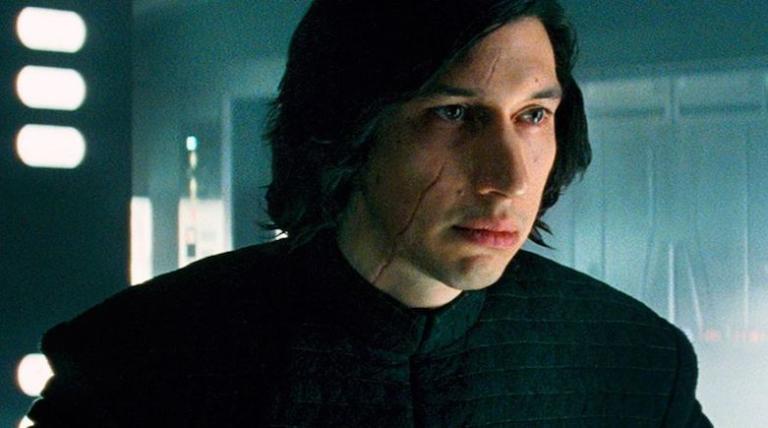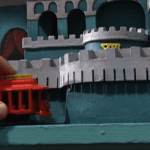
Love it or hate it, Star Wars: The Last Jedi has sparked plenty of debate. I’ve argued with people over [spoilers to follow] Rey’s parentage, the relative speed of First Order star destroyers v. Rebel cruisers and why, in this universe, bombs drop but Leia floats.
But one of the more interesting, geekier discussions I’ve had has been over the First Order’s official wild child, Kylo Ren (played by Adam Driver).
Some believe that Kylo’s story arc is already set in Star Wars stone. And as such, anything bad he does now feels unconvincing. “Yeah, he may seem like a bad hombre now,” they say, “but of course he’ll eventually come around—just like his idol, Darth Vader. He’ll change. He’ll be redeemed. He’s got to be, and if he’s not, it’ll ruin the whole franchise.”
But is it really a foregone conclusion that Kylo will have a change of heart, just like his heavy-breathing grandfather? I don’t think so. Kylo, the former Ben Solo, could embrace the Dark Side to his dying day. And instead of ruining the franchise, it might add another moral layer to it.
Nothing against Kylo, mind you. I have zero problems if Kylo does turn good. Certainly, when Darth Vader tossed the Emperor into that curiously located Death Star shaft, it provided for one of the most remarkable turnarounds in entertainment history. And it also gave the Star Wars saga a bit of an evangelical tang: Indeed, had Vader survived, he might’ve had quite the testimony to share: Here was Vader, chief among sinners, who fell to pride, chief among sins. And then, through love and grace, he found his way back. He was saved. Redeemed.
“You were right about me,” he tells Luke at the very end of Return of the Jedi, affirming his son’s faith in his fearsome, fallen father. “Tell your sister. You were right!”
Say what you want about George Lucas, but he showed a lot of courage in redeeming Darth Vader. Here we find one of entertainment’s biggest, baddest villains. To give Vader a salvation story is like giving one to Ernst Blofeld or the Joker or Voldemort. Honestly, we typically don’t want to see villains that bad saved. We want them to die—and horribly if at all possible. We want to see them punished. They’re too bad to turn good.
But Darth Vader did turn. And for Christians like me, his turning brings a certain potency to our own potential stories of sin and salvation: That no matter what we’ve done in the past, no matter how bad we feel we’ve been, we can be forgiven. We can be rescued. We, like Vader, can come into the light.
If this new Star Wars trilogy offers, ultimately, a rehash of Darth Vader’s arc in Kylo Ren, that’d be a nice reaffirmation of that message. And, I guess, it’d make some narrative sense, too. In The Force Awakens, Kylo idolizes Darth Vader. He wants to grow up to be exactly like him. Fitting if Kylo followed Vader’s example all the way to the Light.
But The Last Jedi took Kylo’s journey a step farther and suggested that Kylo, whatever his boyish ambitions might’ve been, is no Vader. He’s his own man, going his own way. And there’s an important lesson in that, too.
Yes, Kylo—and we—can be saved. But he has to want it. He has to choose it.
And there’s a lesson in there for us, too. We ultimately are the product of our own decisions.
We choose who we will be. Our spouses may encourage us to exercise and eat well, but once we become adults, no one really stops us from eating bacon cheeseburgers every meal. Maybe our parents exhorted us to work hard and never lie, but we’ve got all sorts of freedom to ignore that advice once we grow up. Same is true spiritually, too: Follow me, Jesus tells us. But here’s the thing: We must follow. He’s not going to drag us through heaven’s gates.
Sure, we can blame other people for who we are, to an extent, and fairly. None of us is created in a vacuum. Maybe we didn’t have very good role models. Maybe we’ve been hurt, and that makes it harder to see what we should do clearly. Kylo Ren certainly had his share of obstacles to overcome to be a good guy. His very bloodline got him off to a bad start: “He had too much Vader in him,” father Han Solo says. He and Leia’s decision to send him away might’ve been a factor, too. Snoke worked hard to corrupt the lad. Luke Skywalker’s own failure (as revealed in The Last Jedi) can’t be minimized. Kylo is a product of both his genes and environment, of nature and nurture.
But in the end, Kylo made himself. Not Snoke, not Skywalker. Kylo is responsible for who he is. And right now, Kylo seems determined to destroy anyone else who might’ve had even a modicum of influence in his life. He kills his father. He betrays his spiritual father, Snoke. He tries to annihilate his old teacher, Luke. His decisions, all.
“The Empire, your parents, the Resistance, the Sith, the Jedi,” he tells Rey in The Last Jedi. “Let the past die. Kill it, if you have to. That’s the only way to become what you are meant to be.”
But Rey hasn’t given up on Kylo just yet. Indeed, Kylo’s had people who believed in him and tried to help him every step of the way. There’s still hope. But Kylo must choose to accept it. He must choose to follow.
I wonder how many people see parts of their own stories in Kylo’s: Parents watch kids turn away from their values. Children watch parents vanish in a haze of alcohol or drug abuse. Friends lose friends. Brothers lose sisters. we watch our loved ones slip away from us—sometimes slowly, sometimes all at once.
And we long to save them.
You don’t have to be Christian to feel the living loss of a loved one, of course, but I think that sometimes, Christians may be particularly prone to it, and feel that loss all the more keenly. I know parents who haven’t seen their children for 15 years. I know grown children who’ve been praying for their parents for nearly 30.
We want to help. We want to hold our loved ones in our arms and make them feel safe. We want to show them a better way, a healthier way—to show them the love and life and hope we feel. We’d be willing to do almost anything for those we love. We feel like we’d walk a thousand miles if it’d help. Pay their debts. Give our kidneys. Maybe, if we were asked to sacrifice our very lives for them, we would.
But you know what? We can’t save anyone if they don’t want to be saved.
“There are only two kinds of people in the end,” writes C.S. Lewis in The Great Divorce: “those who say to God, ‘Thy will be done,’ and those to whom God says, in the end, ‘Thy will be done.’ All that are in Hell, choose it. Without that self-choice there could be no Hell. No soul that seriously and constantly desires joy will ever miss it. Those who seek find. Those who knock it is opened.”
I think that hell can be found on earth, too. Hard stuff, I think. But true.
So what can we do? How can we help those we love find their way back? Find their way home? We gotta keep trying and hoping. Like Rey. Like Leia. But as we try and do what we can, we have to understand that, ultimately, it’s out of our hands: It’s in God’s. And in their own.












